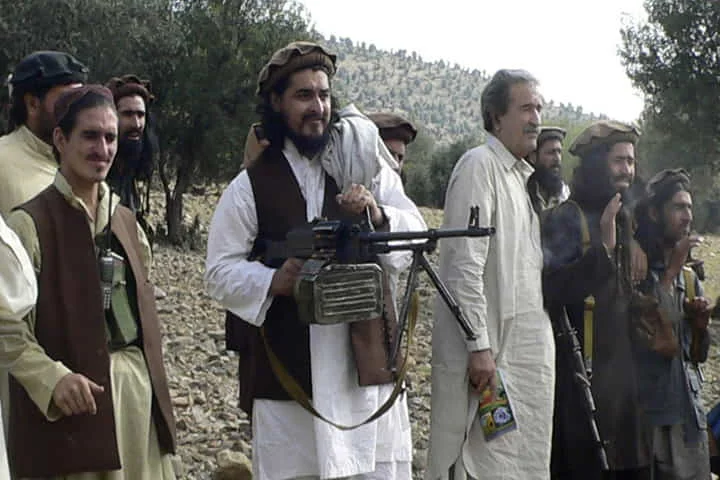While Pakistani Prime Minister Imran Khan is struggling for his survival, the banned UN designated Tehreek-e-Taliban Pakistan ( TTP) has managed to regroup in the restive Khyber Pakhtunkhwa (KP) province, which is reeling under a double attack from the militant group and the Islamic State (ISIS-K).
In the last one month, the TTP has managed to get all its splinter groups into its fold. Besides, it has now started a fund-raising drive in KP and Afghanistan’s Khost and Kunar regions.
"Our military and political Strength is greater than ever before" the TTP chief Noor Wali Mehsud declared.
The TTP has been distributing leaflets in cities and rural areas asking people to donate generously for their ongoing “Jihad’ in Pakistan.
The leaflet was shared on social media by a Pakistani journalist based in KP.
“We’re doing what our brothers (Afghan Taliban) used to do (collect donations) in Pakistan”, the TTP says.
Leaflet circulating on social media since yesterday, asking people in Khost, Afg for donations to support TTP Jihad in Pak. TTP sources in Waziristan confirmed authenticity: “We’re doing what our brothers (Afg Taliban) used to do (collect donations) in Pak”, one TTP source says. pic.twitter.com/yHEqQZvyKV
— Ihsanullah Tipu Mehsud (@IhsanTipu) March 11, 2022
The TTP has also started an extortion drive in Pakistan.
“Calls from telephone numbers starting with the Afghanistan dialling code +93 instil fear in ethnic Pashtun traders in major cities in Pakistan, particularly in Peshawar and these calls are made by the TTP control rooms based in Afghanistan,” says a report by Zia-Ur-Rehman of Global Initiative Against Transnational Organised Crime. He added that the TTP, with ties to the Taliban, are forcing victims to pay exorbitant fees or risk facing consequences.
Their threats are not empty. Traders, doctors, shopkeepers, even parliamentarians in Peshawar and other places in the lawless region have been extorted, and they risk facing mortal consequences in case they refuse to pay.
If traders refuse to pay extortion fee, the militants place small bombs near their homes to frighten them into succumbing to their demands. If they continue to refuse, militants either kill them in public or bomb their houses.
Though the Pakistani army claims that they have launched a massive operation in the wake of major attacks not only by the TTP but other militant groups like ISIS-K and Baloch, the main problem is that these outfits have regrouped across the border in Afghanistan and are targeting Pakistan.
Despite Pakistan’s protests and demands that the Afghan Taliban control TTP’s operations, the Taliban in Kabul have been non-committal terming it Pakistan’s internal matter. When the Pakistanis asked the Taliban in Afghanistan to hand over all wanted leaders of the TTP, the regime refused to do so. In Kabul, the Taliban also warned the Pakistani authorities not to fence the Durand Line – the disputed Afghanistan-Pakistan border.
Pakistani sources say that the Imran Khan government has been trying to restart the talks with the TTP, through back channels for a ceasefire, but the TTP called off the talks in November. There are reports that the Imran Khan government has asked the hardliner Tehreek-i-Labbaik Pakistan (TLP) to ask the TTP to return to the negotiation table but “talks will be (held) under the constitution of the country.”
The TLP is the radical group that forced the Imran Khan government to negotiate a “peace” agreement with them following their violent protests across Pakistan last year.
Despite this rising graph of violence and deepening influence of the radical and fundamentalist groups, the Imran Khan government continues to discriminate between ‘good terrorists and bad terrorists,’ with the deep state continuing with its export of terrorism, particularly through India-centric terrorist groups like Lashkar-e-Taiba, Jaish-e-Mohammad, Hizb-ul-Mujahidin and others.
Not surprisingly, the Financial Action Task Force (FATF), which monitors terror financing, has once again decided to retain Pakistan in its ‘grey’ list, which includes countries that need to do more to counter terror.




















